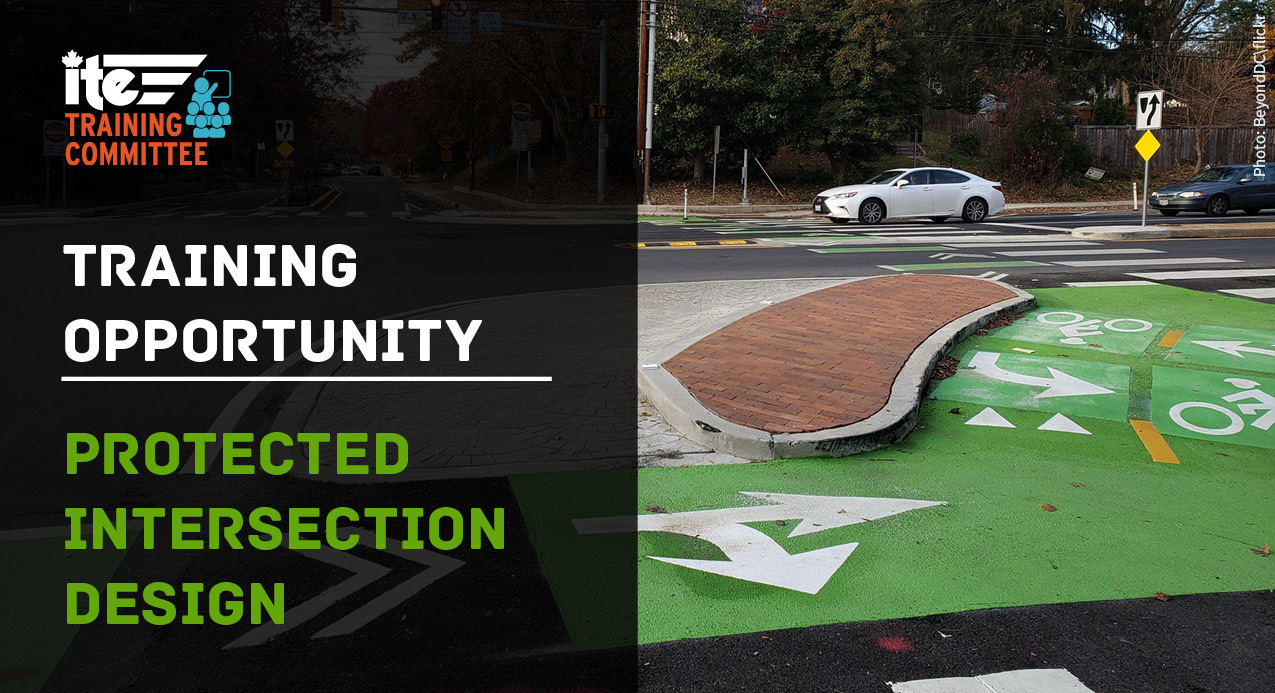

Note that this session will qualify for PDH credit for attendees.
Session is being held over two days from Noon to 3:30PM Eastern Time. A virtual session registration link will be sent upon successful registering for the session here.
Protected intersection design is an approach that intends to improve safety and comfort for all ages and abilities of people cycling and walking through intersections. The planning, design, and implementation of protected intersections has many aspects that require a thoughtful design approach, including addressing universal design and accessibility, complexity of traffic signals, and winter maintenance.
This training will expose transportation professionals to the principles of protected intersection design. The training will draw on forward-thinking design guidance and real-world case studies from around North America and internationally to help participants build an understanding of different approaches to key design issues and trade-offs. Participants will learn to think creatively and outside-the-box in how they tackle practical design issues that municipalities encounter every day.
Through this training, participants will:
There will be a total of three training sessions on different dates. These training sessions will be performed virtually in two half-day segments and each training session will have between 30 and 40 participants. The interactive group exercises will be facilitated through break-out rooms which are anticipated to consist of 5-7 participants, with the exact number depending on the total number of participants in the training session. Breakout rooms will be virtual and will use collaborative tools such as Conceptboard or Miro to allow all participants to contribute to the discussion.
The training sessions will be structured to provide participants with a comprehensive understanding of protected intersection design. The sessions will be organized as follows:
Kalle has over 14 years of planning experience in active transportation planning, land use policy, environmental policy, and development review working for Alta Planning + Design, the City of Ottawa, and the City of Guelph. He recently led the development of the City of Ottawa’s Protected Intersection Design Guide which won the 2022 TAC Mobility Achievement Award and is regularly referenced by jurisdictions far beyond Ottawa. He is passionate about a wide range of active transportation projects, including Cycling Safety at High-Volume Intersections and Stage 2 LRT Connectivity Studies for the City of Ottawa, the Bayridge Drive Complete Street in Kingston, the Halifax Shared Micromobility Readiness Study, and active transportation plans across the country. He is always looking to advance ways of making urban environments sustainable, equitable, and function better at the human scale.
Nataliya Pekar is a Civil Engineer with Alta Planning + Design. She works on active transportation projects across the country and spends her days applying a Complete Street lens to reimagine our streets. Nataliya also gets into the details of making intersections safe and comfortable for pedestrians and people on bikes while also operational and effective for transit, motor vehicles, and trucks depending on the context. Nataliya was on the team for the OTM Book 18 Update (2021), the Corner Design for All Users White Paper (2020), and the Ottawa Protected Intersection Design Guidelines (2021) and has been involved with the planning, design, and implementation of protected intersections across Canada, including Toronto’s first protected intersection at Evelyn Wiggins Drive and Murray Ross Parkway, and others in design in Kingston, Halifax, and Ottawa.